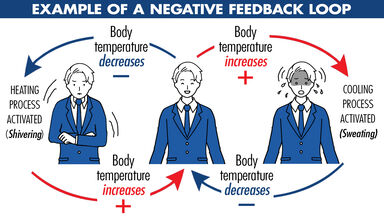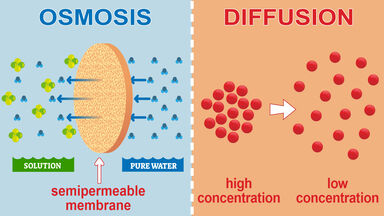Equilibrium Definition
ēkwə-lĭbrē-əm, ĕkwə-
equilibria, equilibriums
noun
equilibriums
A state of balance or equality between opposing forces.
Webster's New World
A condition in which all acting influences are canceled by others, resulting in a stable, balanced, or unchanging system.
American Heritage
A state of balance or adjustment of conflicting desires, interests, etc.
Webster's New World
The ability of the animal body to keep itself properly oriented or positioned; bodily stability or balance.
Webster's New World
The state of a body or physical system at rest or in unaccelerated motion in which the resultant of all forces acting on it is zero and the sum of all torques about any axis is zero.
American Heritage
Synonyms:
- calm
- equanimity
- poise
- counterbalance
- equipoise
- balance
- chemical-equilibrium
- sense of balance
- vestibular sense
- labyrinthine sense
- sense of equilibrium
- symmetry
- composure
- steadiness
- stability
Antonyms:
Other Word Forms of Equilibrium
Noun
Singular:
equilibriumPlural:
equilibria, equilibriumsOrigin of Equilibrium
-
From Latin æquilībrium, from æquus (“equal”) + lībra (“balance”).
From Wiktionary
Latin aequilībrium aequi- equi- lībra balance
From American Heritage Dictionary of the English Language, 5th Edition
Find Similar Words
Find similar words to equilibrium using the buttons below.





